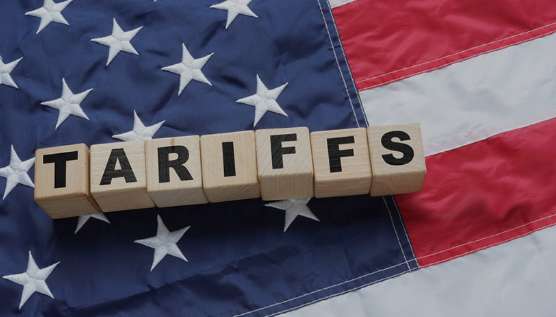Tariff Uncertainty Are Forcing More Companies Into 'Wait-and-See' Mode
US companies have conveyed a common message in their recent earnings reports: President Trump's tariff policies have left the entire United States at a loss.According to statistics, nearly 30 global l

US companies have conveyed a common message in their recent earnings reports: President Trump's tariff policies have left the entire United States at a loss.
According to statistics, nearly 30 global listed companies that have reported earnings so far have either withdrawn or lowered their full-year forecasts, with the US aviation industry being the most affected. However, similar situations have emerged in other sectors, reflecting weak business confidence.
Andre Schulten, CFO of Procter & Gamble, stated that the company must use all possible means to mitigate the impact of tariffs. p&g had previously planned to raise prices across its product line to offset the additional costs brought by tariffs.
Another consumer giant, pepsico, also issued a warning. Jamie Caulfield, PepsiCo's CFO, pointed out that compared to three months ago, the company is less optimistic about consumer demand.
In early April, Trump announced high tariffs on multiple countries, shaking the confidence of global businesses and consumers and triggering a rapid sell-off of US assets. However, shortly after, while delaying most tariffs, Trump threatened to impose additional tariffs on semiconductors, pharmaceuticals, and the automotive industry.
Government officials argued that ongoing trade negotiations with multiple countries are a measure of the success of Trump's policies. However many companies said the continuous back-and-forth negotiations have left them uncertain about how to plan their operations for the coming quarters.
P&G's Schulten emphasized that unless the company is certain about the broader environment, it does not want to make short-term procurement changes. P&G will now wait for the situation to stabilize, which typically takes months or even years, and reversing such decisions would require a similar lead time. Therefore, any knee-jerk short-term reactions would be largely meaningless.
While US domestic companies are trapped in difficulties, European small and medium-sized enterprises (SMEs) are also questioning whether expansion in the US is still necessary. SMEs form the backbone of Europe's economy, but compared to large corporations, these businesses have smaller financial buffers and thus react more quickly to trade risks.
Many European SMEs have stated that they do not plan to expand their operations in the US.
Marc Tenbieg, head of the German SME association DMB, noted that contrary to Trump's hopes, his protectionism will not lead more German companies to relocate to the US and create jobs there.
Andrew Adair, North American trade policy advisor for the German Engineering Association (VDMA), revealed after a recent visit to the US that some of the association's member companies are delaying procurement. Currently, European industries are hitting the pause button on the US.
Disclaimer: The views in this article are from the original Creator and do not represent the views or position of Hawk Insight. The content of the article is for reference, communication and learning only, and does not constitute investment advice. If it involves copyright issues, please contact us for deletion.